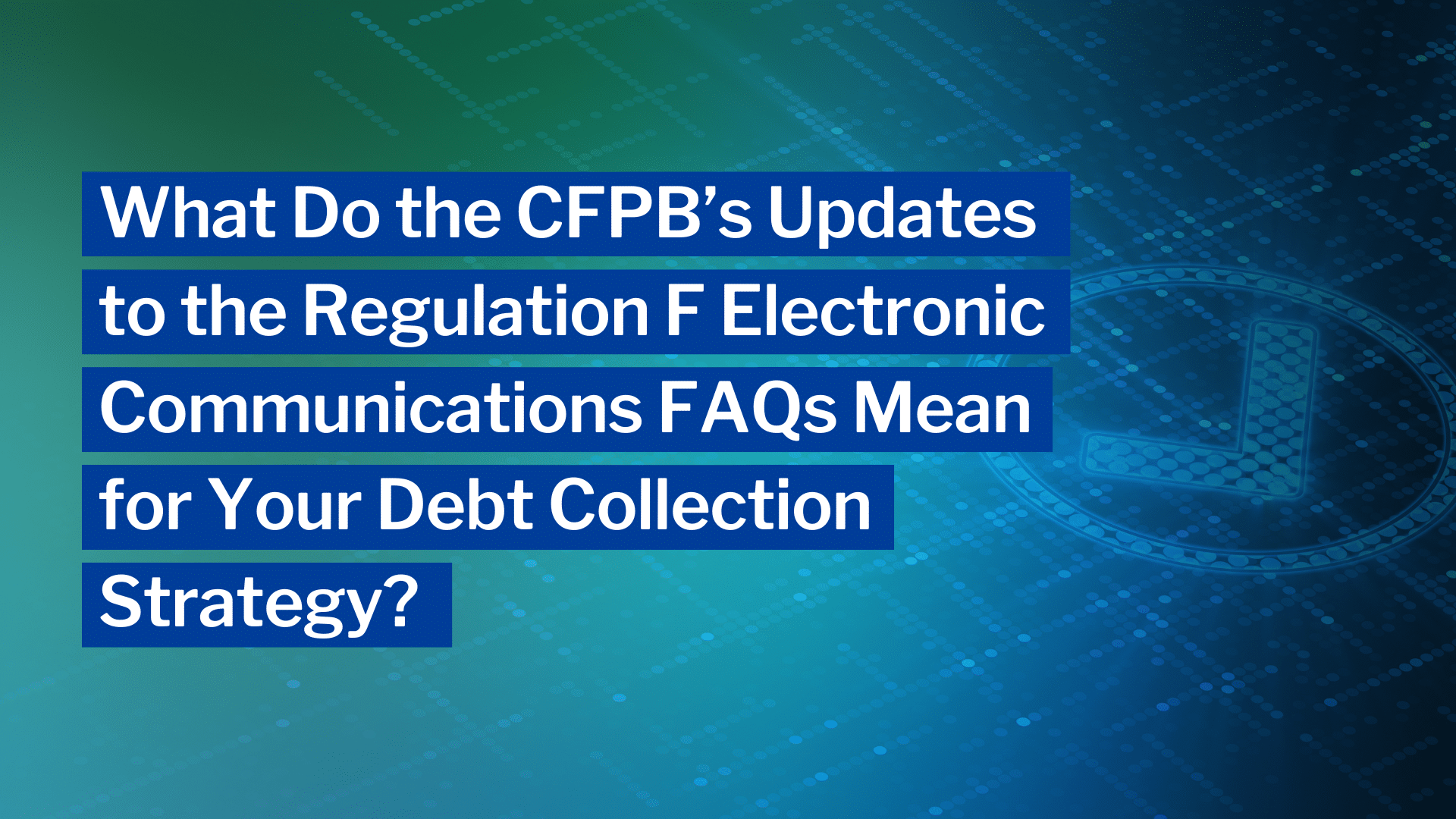
The Consumer Financial Protection Bureau (CFPB) quietly published on its website additional frequently asked questions (FAQs) on the Debt Collection Rule (i.e. Regulation F) relating to electronic communications and communicating during unusual or inconvenient times or places.
The FAQ answers multiple questions, ranging from “is a debt collector required to honor a consumer’s request to opt out of electronic communications if the request does not conform to the debt collector’s opt-out instructions?” to “does an automatically generated electronic communication (such as a payment confirmation) sent at a time the debt collector knows or should know is inconvenient to the consumer, which is sent in response to a consumer action (such as a payment), meet the limited exception for responding to consumer-initiated contact?”
While many of the responses to the FAQs can be found in the Official Interpretation section of Regulation F, there are some points worth highlighting:
- A consumer is not required to use the debt collector’s preferred or stated opt-out method. This means, for example, an email opt-out can come from a non-email channel, an SMS opt-out can from a non-SMS channel, etc.
- A consumer does not need to use specific terms contained in a debt collector’s opt-out instructions in order for their opt out to be effective. For example, if the instructions tell a consumer to reply with “stop” to opt-out, and the consumer replies with “quit” instead of “stop,” the debt collector must still honor that opt-out.
- Email addresses and mobile telephone numbers are not necessarily associated with a “place.” This means that the prohibition on communicating or attempting to communicate at unusual or inconvenient places does not prohibit a debt collector from communicating or attempting to communicate with a consumer through email or mobile phone. However, if the debt collector knows, or should know, that the consumer is at an unusual or inconvenient place, then the prohibition still kicks in.
What should creditors look for in their debt collection partners?
Creditors should check to see if their debt collection agencies train their staff and design their processes so that they promptly and effectively identify and process opt-out requests. Since opt-out requests can come in various forms and fashions, debt collectors need dynamic procedures to capture any and all opt-outs. Debt collection agencies also need processes and technologies to help them implement controls for inconvenient time and place restrictions – which may be a little tricky when applied to email and mobile phone numbers.
What is TrueAccord’s take?
At TrueAccord, our goal is to make the debt collection experience friendly and easy for consumers. That is why we engage consumers on their preferred communication channels and make it easy to opt-out of electronic communications. We take a broad approach to honoring a consumer’s opt-out request no matter how we get it or what specific words they use.
While the new FAQs clarified that the Debt Collection Rule does not require debt collectors to communicate electronically with consumers, we pose this question back:
If a consumer reaches out to you electronically, why wouldn’t you want to communicate with them on the channel they prefer?
Start evolving your consumer engagement and communication strategy to meet your customers where they will be most receptive. Schedule a consultation to learn how TrueAccord can help you get started»